Top multi-agent platforms
Collaboration is key to a successful workplace. In fact, 73 percent of employees that work closely with others report improved performance.
If you’re looking for ways to encourage collaboration among your team, artificial intelligence (AI) agents can help. In fact, multi-agent platforms also offer another collaborator — the technology itself. The result? Increased efficiency, higher productivity, and more time for strategic thinking.
In this article, we’ve gathered the 15 leading AI collaboration tools designed to enhance teamwork, streamline communication, and improve productivity. But first, let’s begin with a closer look at what multi-agent platforms are and the benefits of these types of tools.
What are multi-agent platforms?
Multi-agent platforms are autonomous artificial intelligence tools that work together with other AI agents to complete tasks. They gather and share data from disparate sources to make decisions and complete actions — everything from mundane and repetitive tasks to complex, multi-step workflows.
Many multi-agent platforms have core functionalities that streamline task management, communication, and decision-making, helping employees increase performance and reach organizational goals. Some multi-agent platforms augment human abilities, working side by side with your team. Others enhance your employees’ abilities to communicate and work together.
The key is that multi-agent platforms make collaborating — whether with other people or with technology — easier, faster, and more effective.
Benefits of using multi-agent platforms
Why use team AI agents in your business? Here are some compelling reasons:
- Increased productivity: Workplace AI tools can handle the routine, boring tasks so employees can focus on the more fulfilling human-centered workflows, such as tending to patients or building customer relationships.
- Deeper collaboration: AI agents can gather insights from employee or customer communication so you can build upon key ideas for better performance.
- Reduced errors: From minimizing missed deadlines to spotting typos, AI agents can reduce human error. For example, a task management tool can keep teams on schedule.
- Enhanced employee experience: AI tools give employees access to data faster and make connecting with teammates easier — both of which increase employee satisfaction.
- Higher customer satisfaction: When employees are able to do their jobs more efficiently, customers reap the benefits. For example, customer service AI agents can triage disgruntled customers to human reps to resolve issues faster.
The best multi-agent platforms
Now that you’re sold on their benefits, let’s take a look at those 15 best tools that you might want to integrate into your organization.
1. Jotform AI Agents
Jotform AI Agents facilitates dynamic collaboration between businesses and customers, enabling streamlined workflows. These AI agents can answer customer queries and help them fill out online forms with ease.
Build Your Custom AI Agent in Minutes
Get Started Now- Developer: Jotform
- Best for: Form-related business processes
Key features: No-code user interface, directory with hundreds of ready-to-use agents, easy training process - Pros: Easy to use, seamlessly connects to Jotform’s product ecosystem
Cons: Only works with form-related processes, doesn’t collaborate with other AI agents
Plans/pricing: Free version; paid plans start at $34 per user per month and connect you to Jotform’s product ecosystem, and a custom enterprise-level plan is available
G2 rating: 4.7/5
2. Appy Pie AI Agents
Appy Pie AI Agents is a no-code development and automation tool. It allows you to create multi-agent platforms that streamline workflows.
- Developer: Appy Pie
- Best for: App workflow automation
- Key features: Trigger and action app workflows, automated design intricacies, dozens of app integrations
Pros: Multi-platform app integrations for streamlined collaboration - Cons: No free plan, seven-day trial doesn’t offer a lot of time to explore the product
- Plans/pricing: Free trial; paid plans start at $12 per month for five apps, and a custom enterprise-level plan is available
- G2 rating: 5/5
3. Magical
Magical is a workflow automation and autofill AI agent that connects disparate systems together.
- Developer: Magical
- Best for: One-click automation
- Key features: Self-serve automation creation, AI-powered workflow optimization, auto form filling
- Pros: Can reduce automation development costs by over 50%
- Cons: Some performance bugs, all plans only come with 100 monthly automations
- Plans/pricing: Free version (600 text expansions); paid plans start at $6.50 per user per month (unlimited text expansions), and a custom enterprise-level plan is available
- G2 rating: 4.8/5
4. CrewAI
CrewAI is an open-source multi-agent builder and automation platform.
- Developer: CrewAI
- Best for: Multi-agentic automations
- Key features: No-code and coding-from-scratch options, ability to use any LLM, library of templates and use cases
- Pros: CrewAI lets you track each agent and crew so you can gauge their performance on each task
- Cons: Collects some anonymized usage data; requires some technical knowledge, although no coding is required
- Plans/pricing: Contact CrewAI for information on plans and pricing
- G2 rating: N/A
5. Agentforce
Agentforce is Salesforce’s AI agent builder. Its AI agents can be deployed to handle service and sales tasks that support employees and customers.
- Developer: Salesforce
- Best for: Salesforce users
- Key features: Role-based task completion for employee and/or customer support, library of pre-built agent skills, easy integration with tools like Slack
Pros: Assist humans in their tasks, taking on repetitive tasks and/or escalating tasks to humans when necessary - Cons: Only Salesforce customers can use the free plan, using the platform and getting the most out of its features involves a learning curve
- Plans/pricing: Free version for existing Salesforce customers; paid usage is $2 per customer conversation
- G2 rating: 5/5
6. Taskade
Taskade is an autonomous AI agent and workflow automation platform that focuses on project management.
- Developer: Taskade
- Best for: Collaborating on projects
- Key features: AI agent collaboration workspace, unlimited text and video chat with AI teams, AI workflow generator
- Pros: Enables humans to accomplish tasks at ten times the speed
- Cons: Lacks sufficient training and educational resources, doesn’t have as many integrations as other comparable tools
- Plans/pricing: Free version (one AI agent); paid plans start at $8 per user per month (custom AI agents), and a custom enterprise-level plan is available
- G2 rating: 4.6/5
7. Kore.ai
Kore.ai is an enterprise-level conversational AI platform for employee and customer service.
- Developer: Kore.ai
- Best for: Conversational AI
- Key features: No-code agent builder, pre-built agents for certain industries, human-assisted handoffs for contact centers
Pros: Agnostic to language model, data source, and enterprise system - Cons: Training the AI can take some time, some users report issues with the rephrase utterance feature
- Plans/pricing: Kore.ai has two paid plans starting at $50 per month for 1,000 sessions, and a custom enterprise-level plan is available
- G2 rating: 4.7/5
8. Spell
Spell offers autonomous AI agents powered by GPT-4.
- Developer: Spell
- Best for: Content generation at scale
- Key features: Library of curated prompts, templates for common use cases, ability to complete parallel tasks
- Pros: Over 100 plug-ins to enhance your AI agents
- Cons: No free plan, seven-day trial doesn’t offer a lot of time to explore the product, lowest pricing tier doesn’t offer access to AI agents and plug-ins
- Plans/pricing: Free seven-day trial; paid plans start at $7.50 per month
- G2 rating: N/A
9. Relevance AI
Relevance AI lets organizations build autonomous AI teams that deliver human-quality work.
- Developer: Relevance AI
- Best for: Visual AI agent builder
- Key features: 100-plus AI agent templates; no-code, highly visual user interface; agnostic to large language model (LLM)
- Pros: Easy to give your AI agents skills such as searching the internet or transcribing videos
- Cons: Free plan only includes 10MB of knowledge, considerable learning curve involved despite the no-code interface
- Plans/pricing: Free version (100 credits per day); paid plans start at $19 per month (10,000 credits per month), and a custom enterprise-level plan is available
- G2 rating: 4.4/5
10. AirOps
AirOps helps organizations scale up their content marketing using AI workflows.
- Developer: AirOps
- Best for: Content marketing automation
- Key features: Library of content marketing templates, can combine 40-plus AI models, single-click scalability
- Pros: Comprehensive learning academy to help users master the platform
- Cons: Only 1,000 tasks per month available on the free plan, advanced features can be costly
- Plans/pricing: Free version (1,000 tasks per month); 10,000 tasks cost $199 per month, and there are two additional custom paid plans based on usage
- G2 rating: 5/5
11. FlowiseAI
FlowiseAI is an LLM low-code app and AI agent builder.
- Developer: FlowiseAI
- Best for: LLM apps
- Key features: Quick, iterative process; LLM orchestration; 100-plus integrations
- Pros: Vast open-source community shares tips and tricks to build your LLM apps
- Cons: No free plan, requires technical expertise with coding and development
- Plans/pricing: Free 14-day trial; paid plans start at $35 per month for 10,000 predictions
- G2 rating: N/A
12. Breeze
Breeze is a complete AI solution for marketing, sales, and service teams. It offers copilots, agents, and intelligence tools.
- Developer: HubSpot
- Best for: HubSpot users
- Key features: AI-powered task assistant, autonomous agents for workflows, library of agent templates (beta)
- Pros: Embedded throughout the entire HubSpot platform
- Cons: Only available within HubSpot, not other CRMs; not all features are free with your HubSpot plan
- Plans/pricing: Breeze Copilot and some additional features are available free with your HubSpot plan; Breeze AI agents and advanced features are only available in HubSpot premium editions
- G2 rating: N/A
13. Beam AI
Beam AI is a platform for building self-learning AI agents that reduce errors and increase productivity.
- Developer: Beam AI
- Best for: Agentic process automation
- Key features: Comprehensive AI agent library, intelligent automations, end-to-end process automation tools
- Pros: Comes with several pre-trained agents to help you get started in minutes
- Cons: Steep learning curve, especially for beginners; requires coding knowledge
- Plans and pricing: Contact Beam AI for information on plans and pricing
- G2 rating: N/A
14. DRUID
DRUID is an enterprise AI platform designed to enhance employee and customer experiences.
- Developer: DRUID
- Best for: Directing tasks to multiple agents
- Key features: Pre-built agents for various use cases, intelligent direction of tasks to other agents, real-time tracking of agent performance
- Pros: Can automate processes across departments with specialized child bots
- Cons: Requires some specialized technical knowledge, better suited to large organizations
- Plans/pricing: Contact DRUID for information on plans and pricing
- G2 rating: 4.5/5
15. AgentOps
AgentOps is a platform for testing and debugging AI agents.
- Developer: AgentOps
- Best for: Testing and debugging AI agents
- Key features: Visual tracking for multi-agent interactions, rewind-and-replay functionality, full data trail of logs
- Pros: Helps organizations track spending for multiple AI agents
- Cons: Only 1,000 events available on the free plan; the custom data retention policy is only available with the enterprise-level plan, which can be problematic for smaller organizations with privacy concerns
- Plans/pricing: Free version (1,000 events); paid plan is $40 per month (10,000 events), and a custom enterprise-level plan is available
- G2 rating: N/A
Challenges and considerations when choosing multi-agent platforms
As you can see, not all multi-agent platforms are the same. There’s a lot of variance between real-time collaboration agents, intelligent assistant tools, AI-powered teamwork software, and other types.
To avoid any potential challenges when implementing workplace AI tools, think about these during your selection process:
- Privacy concerns: Does the company collect your business data? If so, how is it used? Understand the privacy implications of using collaborative AI tools. If you’re in a highly regulated industry like healthcare or finance, pay special attention to a tool’s compliance claims to ensure it aligns with your requirements.
- Steep learning curves: Multi-agent platforms are complex. While many solutions don’t require coding knowledge, they may still need some level of technical expertise to implement, use, and maintain. Be aware of the learning curve ahead and provide your team with the necessary training.
- Compatibility issues: Does the AI integrate with your existing tech stack? Does it have native integrations or use APIs? It’s important to know how well the technology will mesh with your business tools so you can share data seamlessly.
- Bias and ethics problems: AI agents are sometimes trained on biased data or in an unethical manner. If either of these are the case, be wary of doing business with the company — it could negatively affect your work product, your reputation. and your relationship with the vendor.
The future of multi-agent platforms
AI tools are in their infancy, which means we can expect to see considerable improvements in the years to come.
In the future, it’s likely that advanced sentiment analysis will help AI tools provide emotionally intelligent responses, especially in challenging scenarios where the human user is upset or frustrated. Together with advanced natural language processing, this will make conversations with AI bots more human-like.
You can also expect to see deeper integration between multi-agent platforms and other types of technology, such as the internet of things and virtual reality machines. They’ll be able to connect to a multitude of other devices to complete business goals and offer better performance results.
Learning will also improve, with individual users and other AI agents training multi-agent platforms to offer more personalized and highly accurate results.
Jotform AI Agents: Enabling streamlined data collection with dynamic collaboration
Jotform AI Agents transform your business forms into conversational experiences so you can collect data, answer queries, and enhance both employee and customer experiences. All you need to do is simply select a form, train the AI with your data, and customize the AI agent with our intuitive Agent Builder.
The Jotform AI Agents directory comes with hundreds of AI agent templates to get you started. Take the Hospice Care Coordinator Agent, for example, which helps relatives fill out necessary forms and streamlines admin during sensitive times. There’s also the Real Estate Consultant, which assists clients in finding their dream home or office, and the School Administrator Agent, which can be used to foster a strong partnership between students and parents and automate various tasks within educational institutions.
With AI agents for a range of industries and business functions, you’re sure to find one that meets your needs. Give Jotform AI Agents a try for free today.
Photo by Tima Miroshnichenko


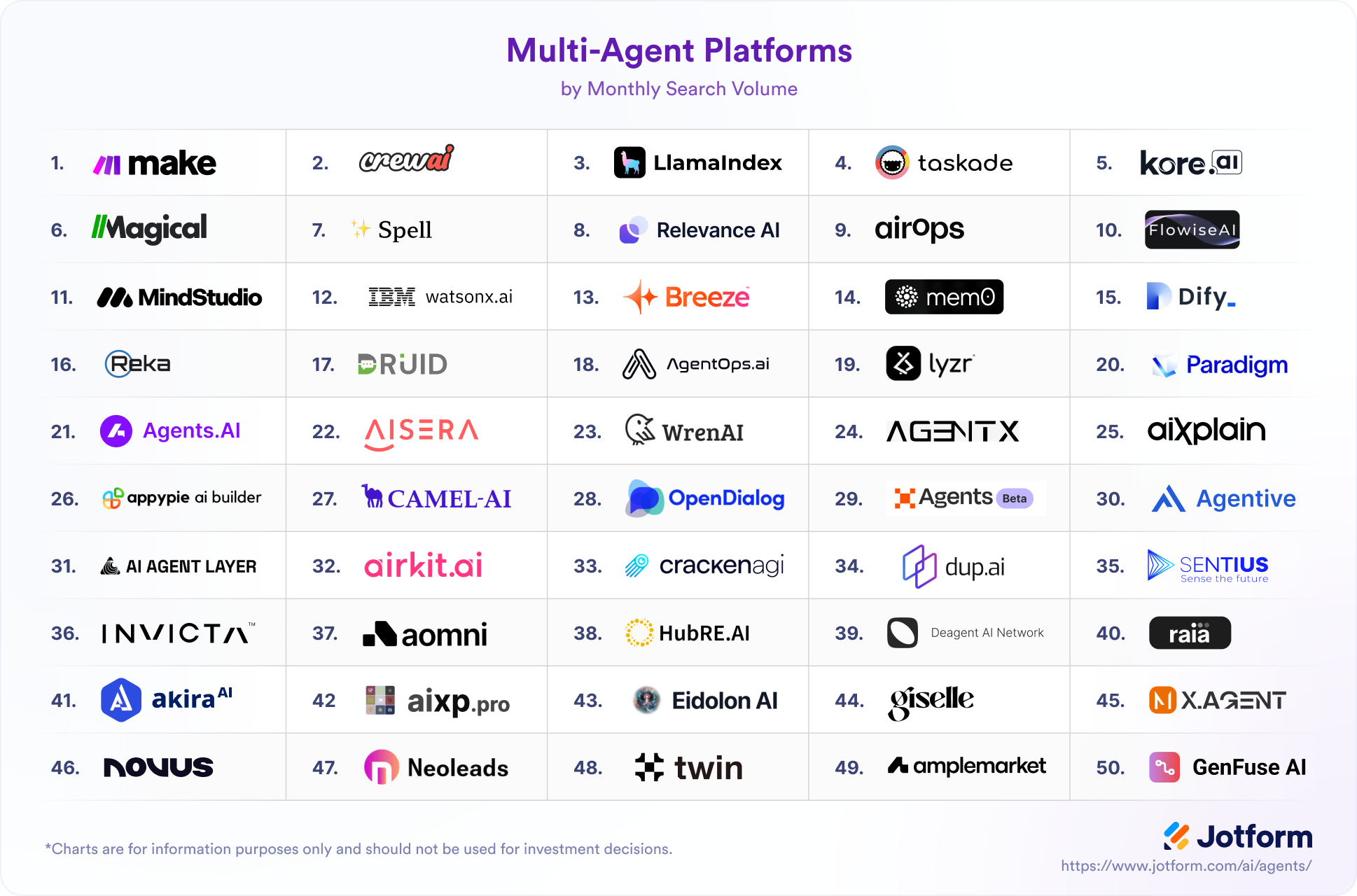
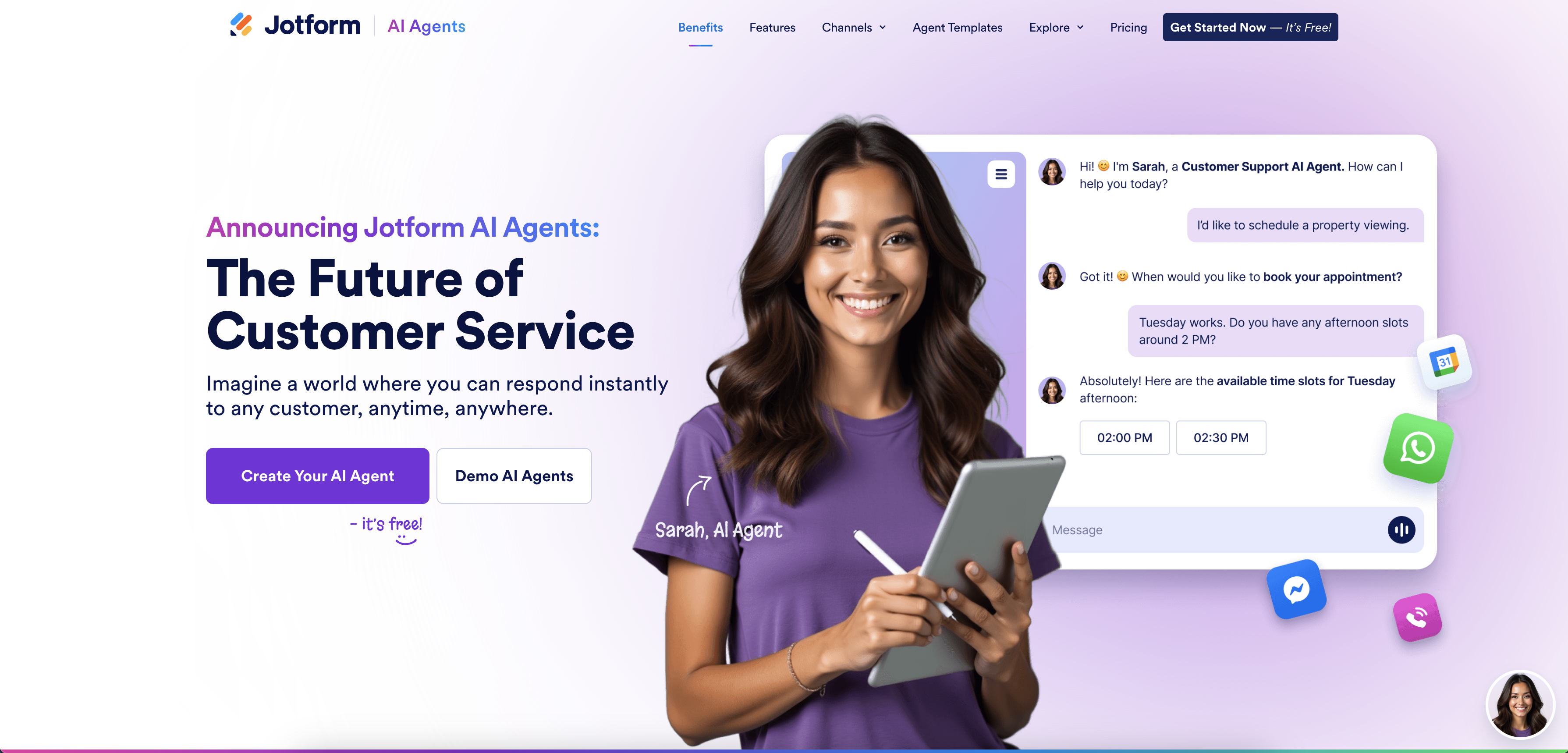



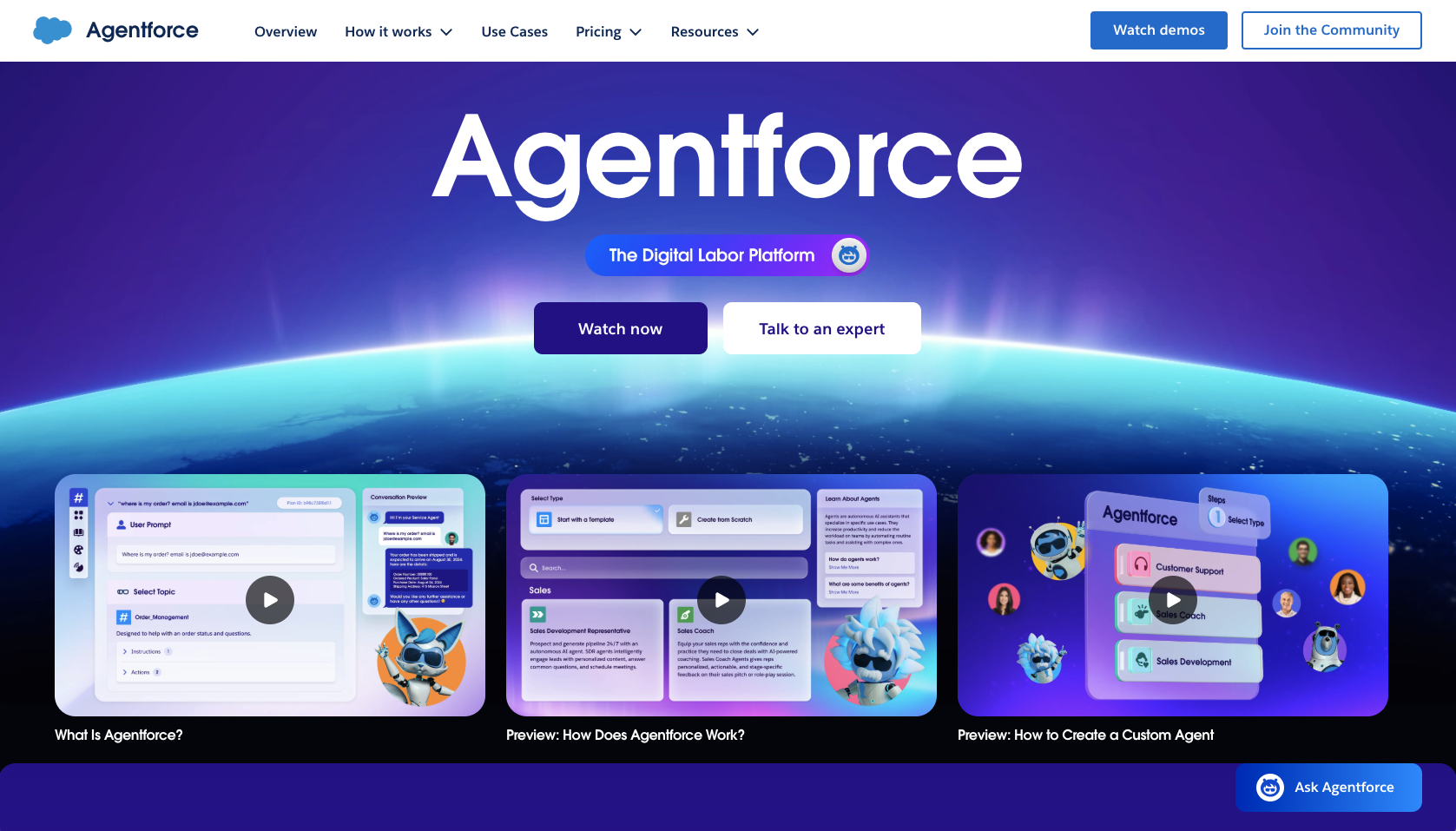
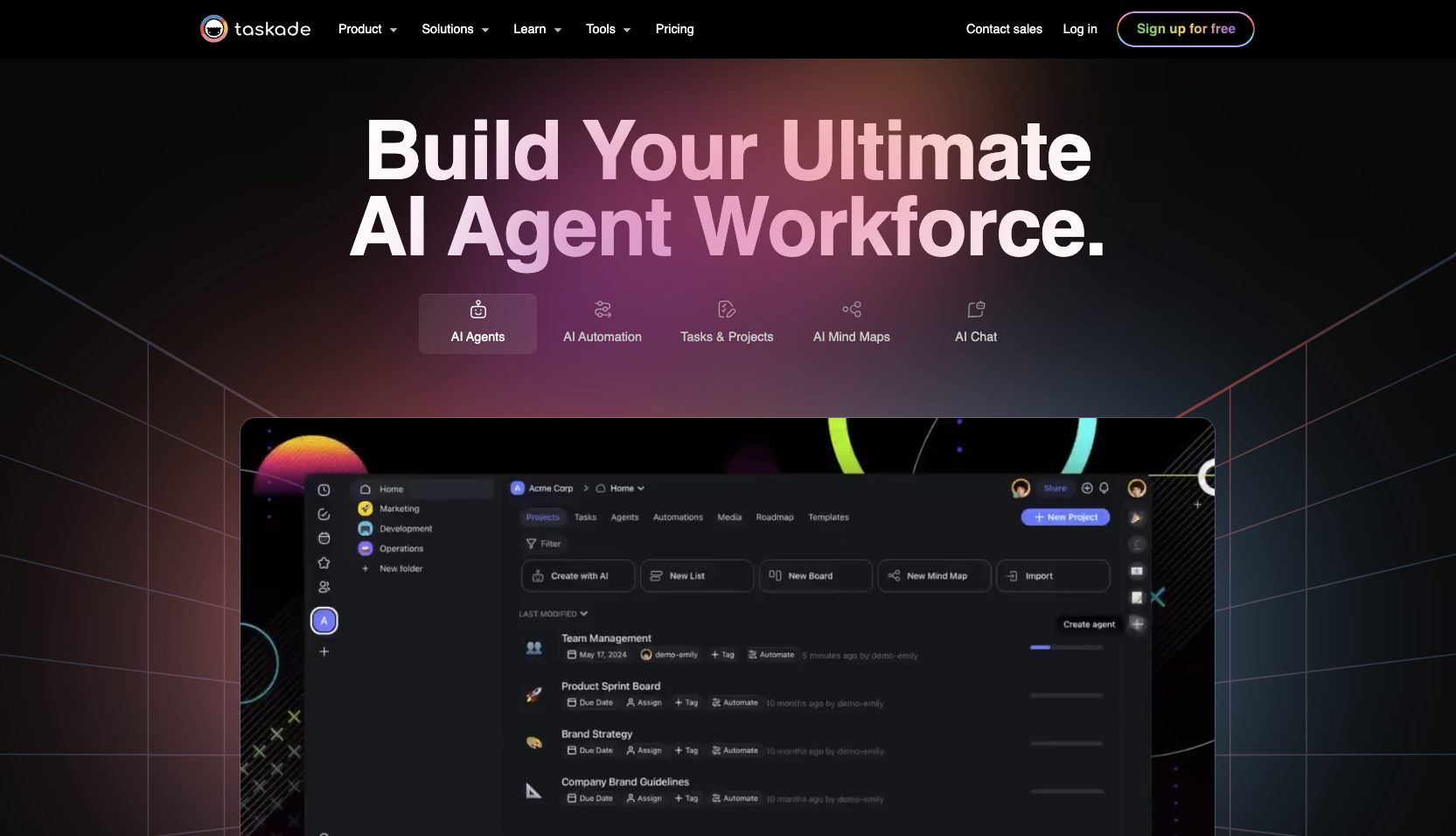
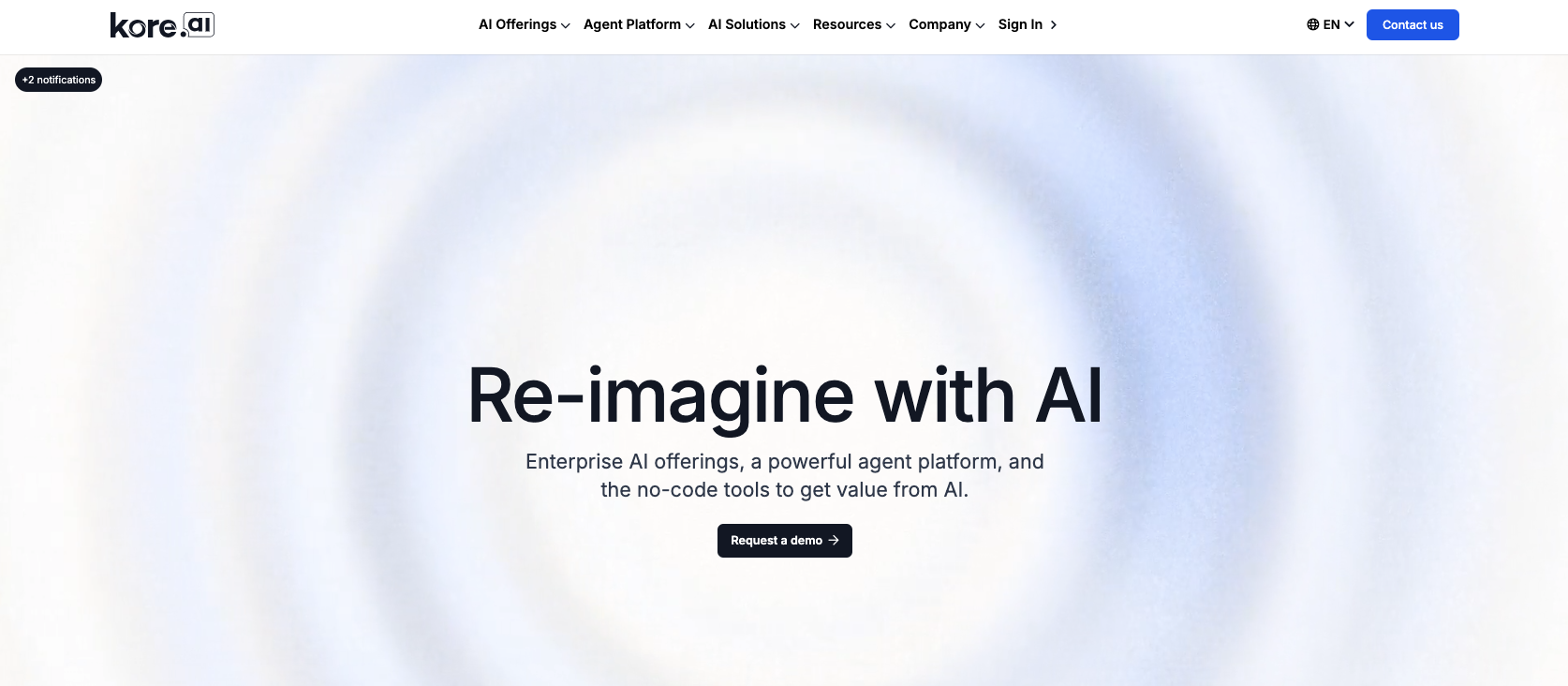

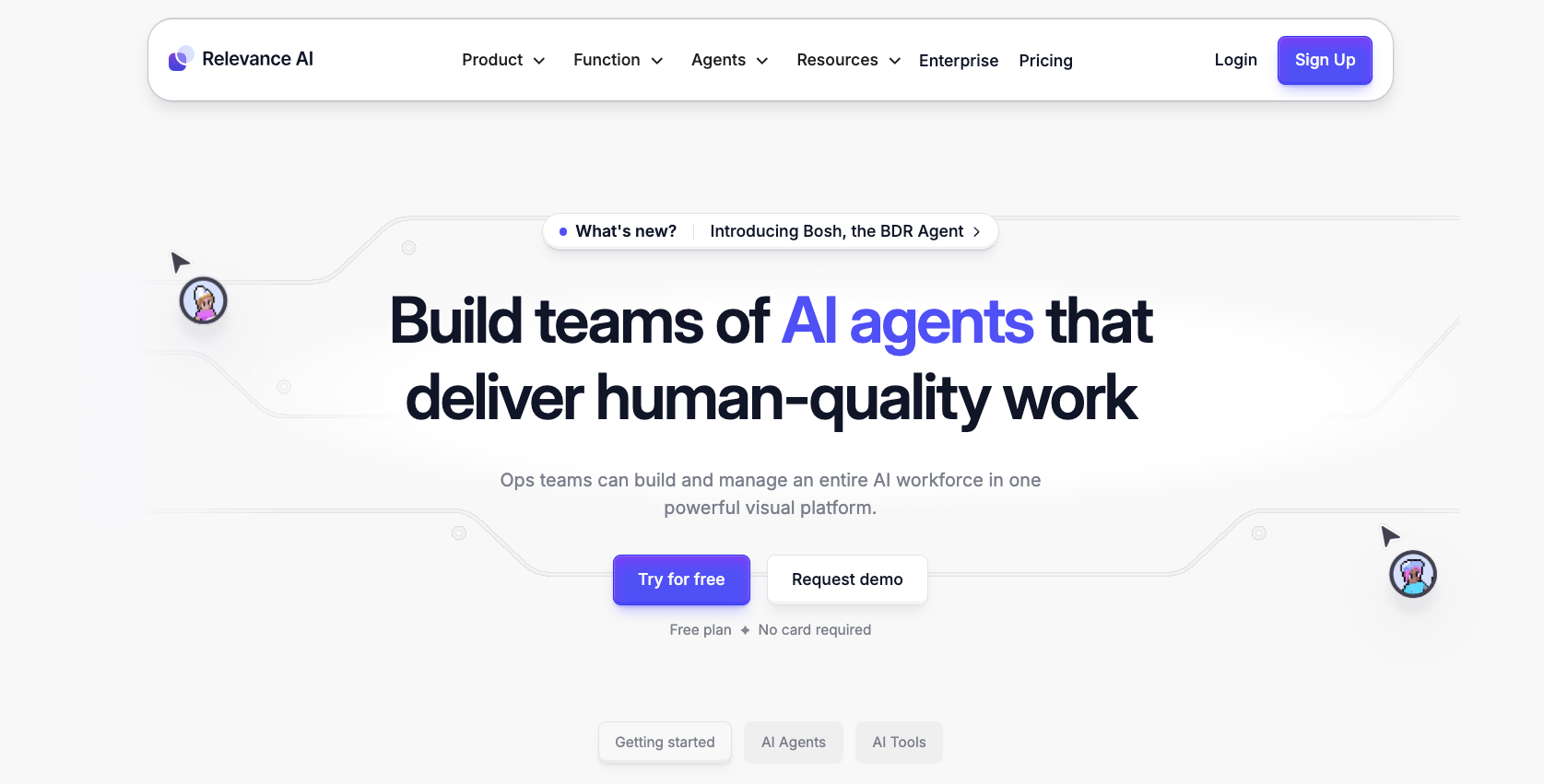

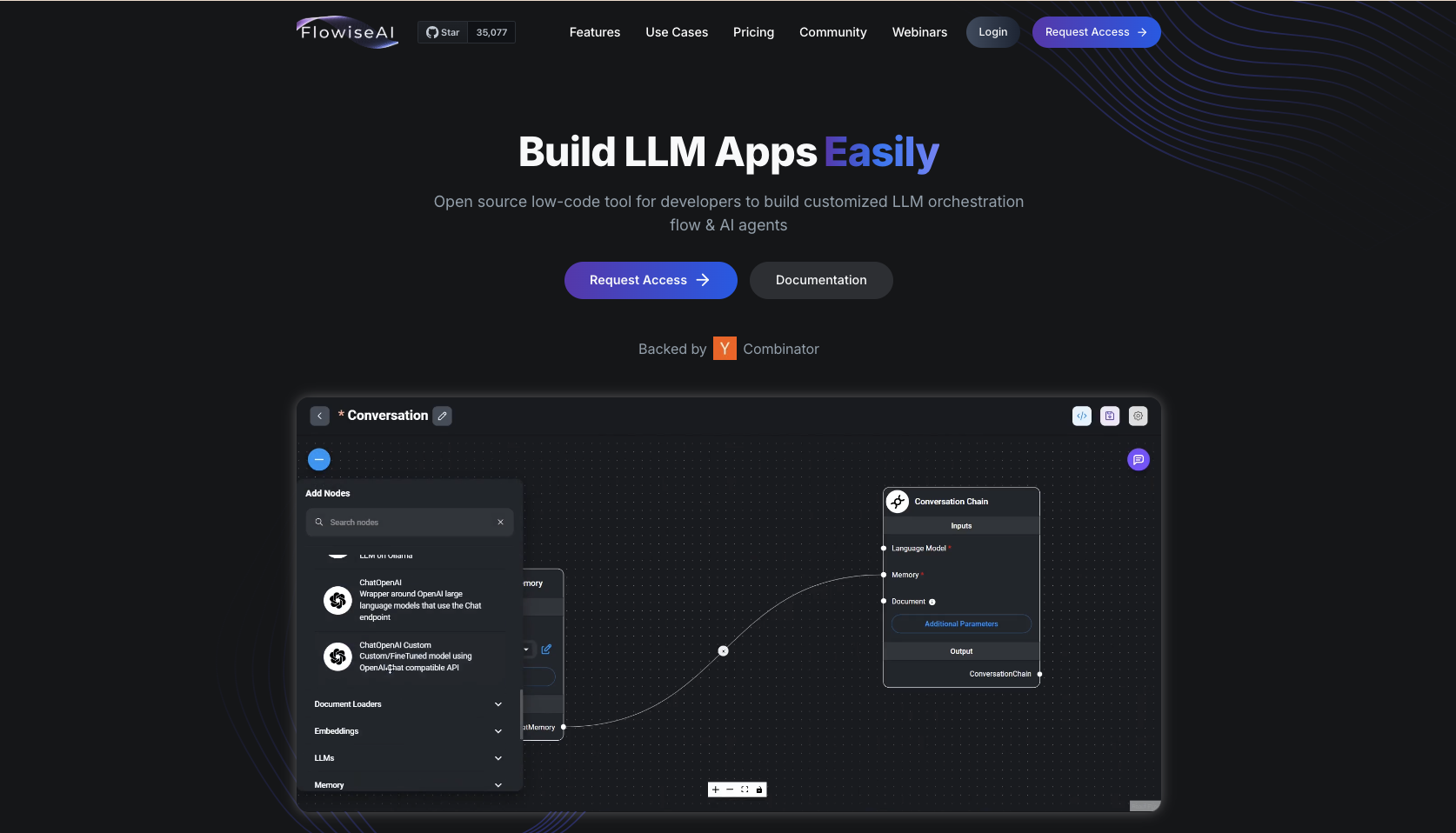
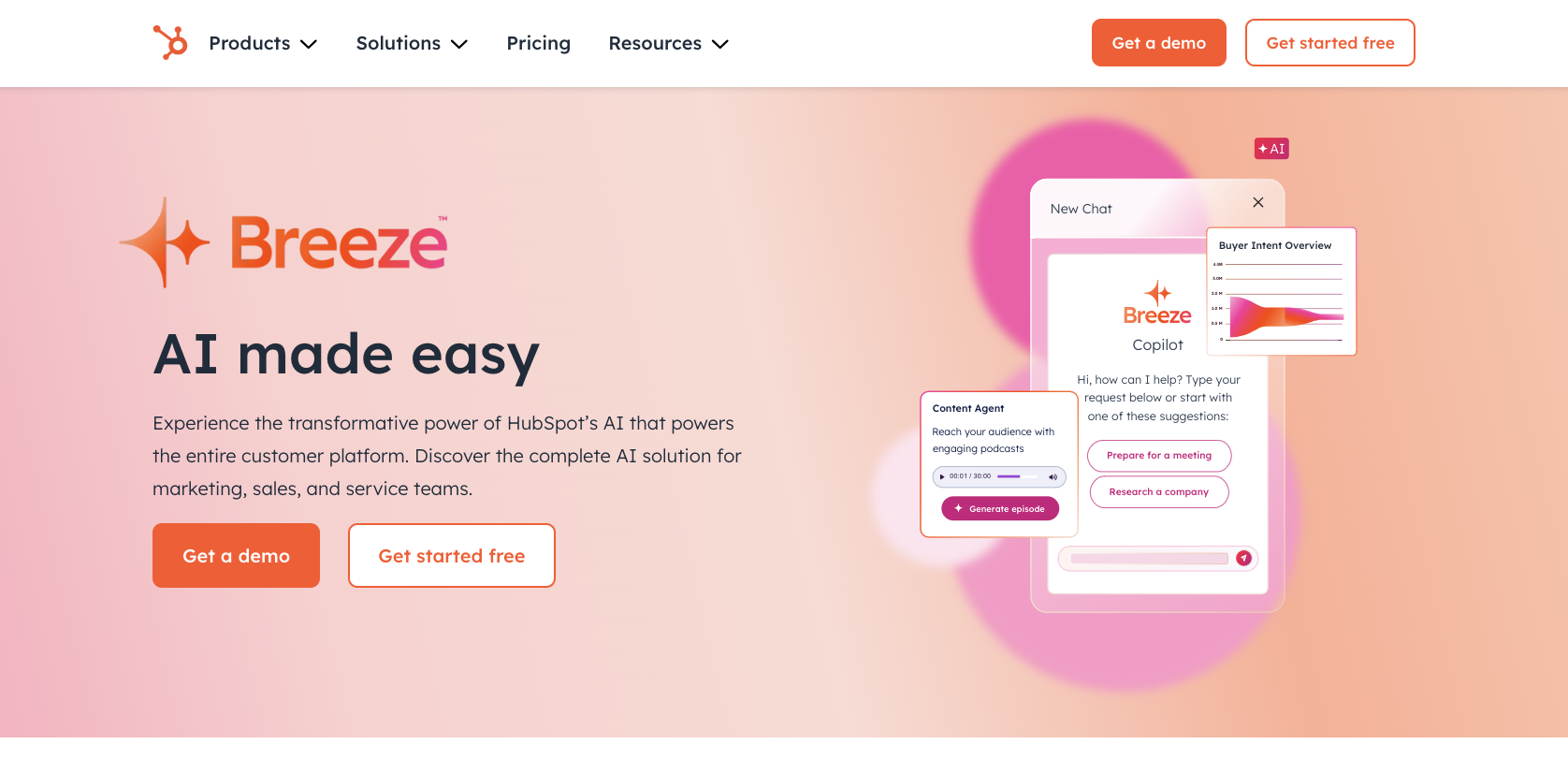
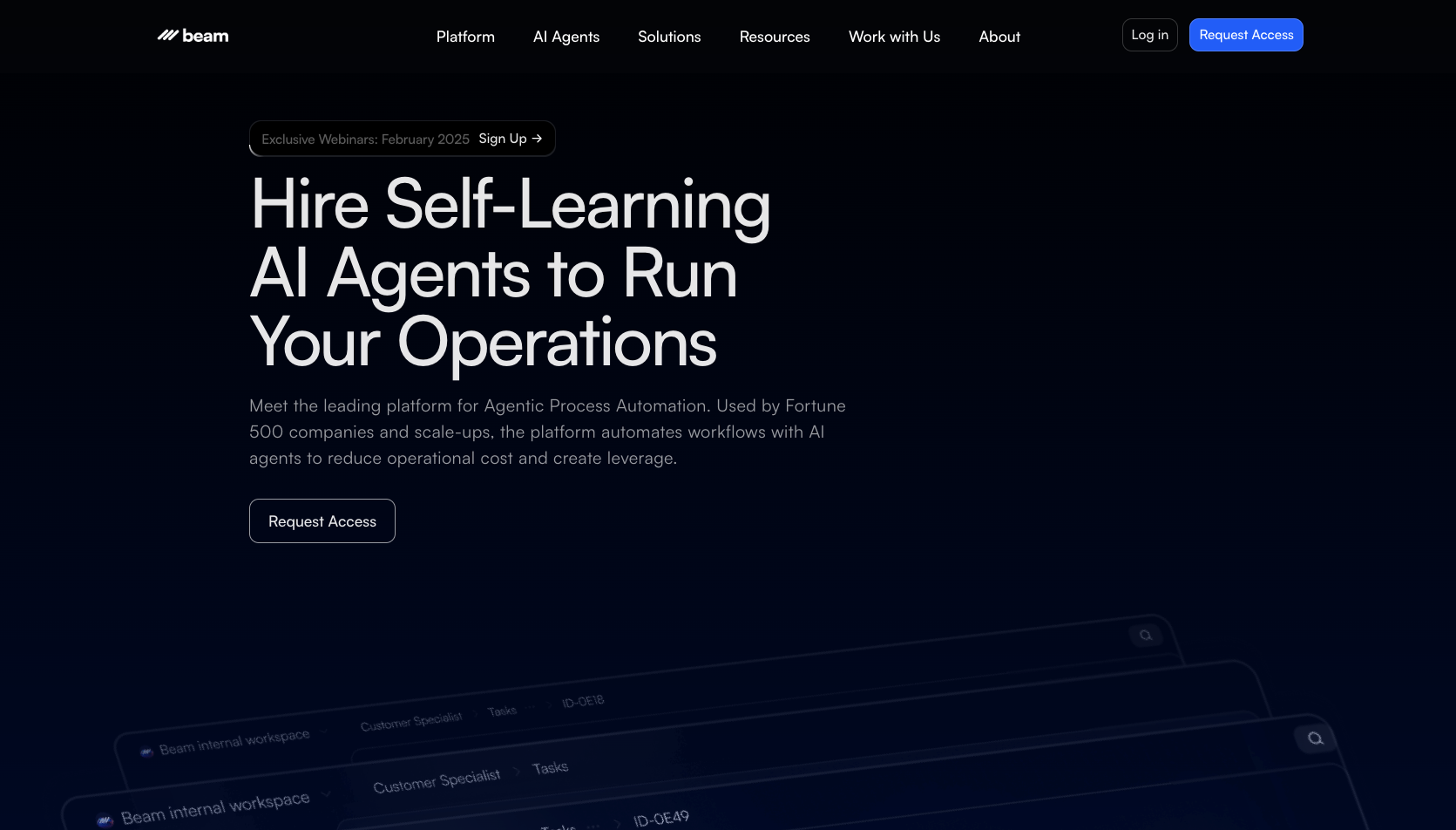

























































Send Comment: